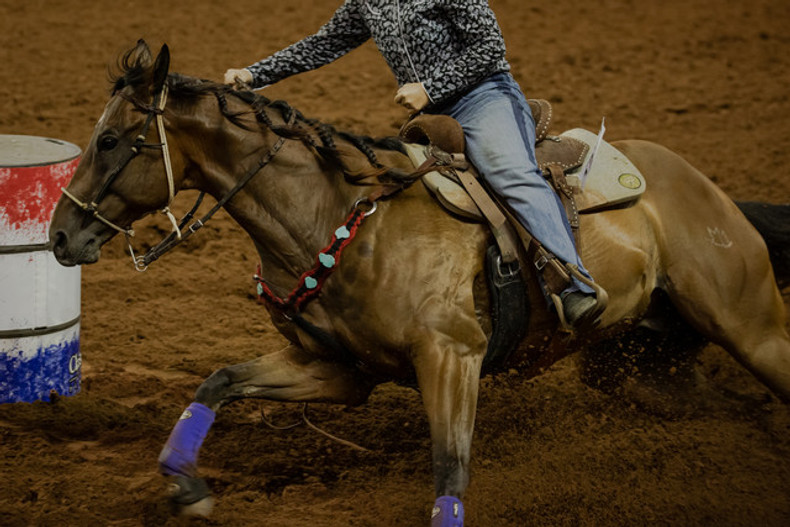Leaky gut syndrome is popping up on the radar of more and more barrel horse owners. It is a condition that affects more horses than we realize, and much effort is being put in from researchers to help provide answers. Here are the details you need to know.
What is Leaky Gut?
Leaky gut is a failure of the intestinal barrier. At a microscopic level, the intestinal lining is really just a series of cells that are charged with the task of allowing the good stuff in (nutrients) and keeping the bad stuff out (toxins and pathogens). The cells are held together by unique structures called tight junctions. When they are operating properly, the cells are held tightly together and form a barrier that supports proper nutritional function and immune health. When this barrier is compromised, and the tight junctions fail, the cells start to separate. The gaps between the cells allow toxins, pathogens, and undigested nutrients into the body. This then triggers an intensified response from the immune system which creates systemic inflammation and digestive issues for the horse. An in depth explanation can be found in this webinar by Dr. Jyme Nichols.
How is Leaky Gut Diagnosed?
As of now, there is no definitive diagnosis for leaky gut syndrome in horses. However, researchers are actively working toward a metric to help veterinarians diagnose the condition. In the meantime, horse owners should be on the lookout for typical symptoms such as: horses that become irritable or cinchy, unexplained loss of body condition, loss of appetite, sudden unwillingness, unusual stiffness or unresponsiveness to leg cues, and allergy panels with multiple “low positive” allergens. The big key is looking for these abnormal changes and catching them early, especially if the horse is under a lot of stress.
What Causes Leaky Gut?
In one word, STRESS is the biggest cause of leaky gut. Horses deal with daily stressors that we don’t even think about. Being stalled; hauling to local jackpots or long trips to rodeos; having to leave a buddy horse; changing owners; new loads of hay; changes in grain; intense training schedules; the use of antibiotics, dewormers, and NSAID’s such as Bute and Banamine; and hot/humid weather. All of these things are stressful to a horse, and some horses are simply better at handling them. In addition, there are nutritional stressors such as high starch diets, mycotoxins, chronic low-level ionophore contamination, and abrupt changes in feed formulas that can add to the situation.
What Can I Do to Prevent Leaky Gut?
First and foremost do everything in your power to limit the stress in your horse’s life. You can’t eliminate it completely but you can help mitigate some of it. Make sure they have shade, good air flow, and fresh water when it’s hot. Provide shelter, and plenty of good quality hay when its cold. When you travel, try to maintain a consistent routine with feeding and watering, and let horses out to walk around often when you are taking long trips.
From a preventative-nutrition standpoint, Bluebonnet Feeds has just launched Equilene® Pro Care®, a beet pulp based feed designed with leaky gut syndrome in mind. It contains research proven ingredients that are showing extreme promise in supporting the intestinal barrier and immune function. These specific technologies include plasma, butyric acid, and yeast culture metabolites.
If you have a horse that is exhibiting signs of leaky gut syndrome, products such as GI Intensive Care® are showing great promise in clinical trials. GI Intensive Care® contains butyric acid, and biologically active components that target the intestinal lining and help horses make a rapid turnaround.
If you suspect your horse may be in need of a specialized nutrition program, or if you just want a nutrition consultant to review your horse’s current diet, Bluebonnet Feeds offers free virtual nutrition consults.

